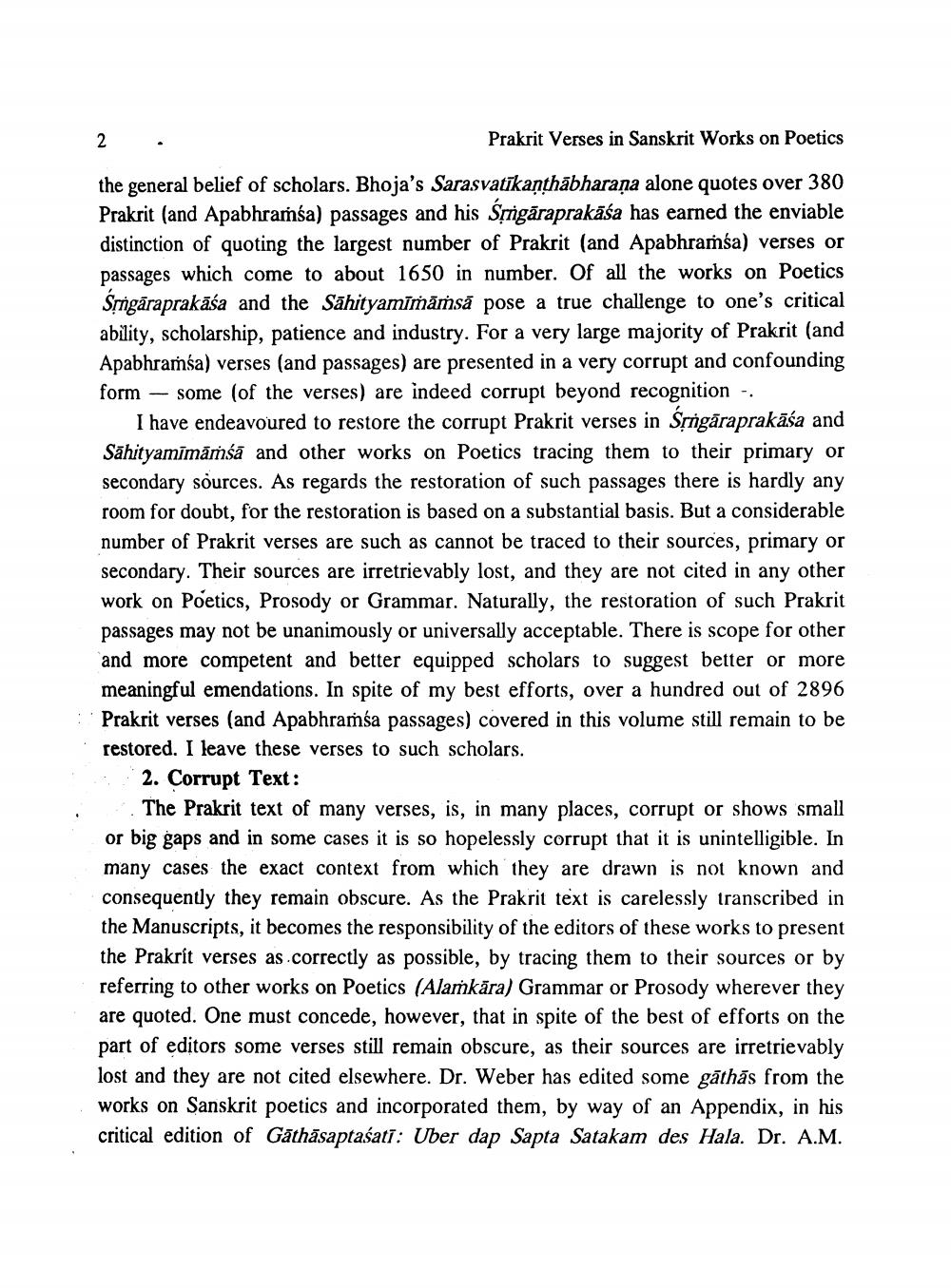________________
2
.
Prakrit Verses in Sanskrit Works on Poetics
the general belief of scholars. Bhoja's Sarasvatīkanthābharaṇa alone quotes over 380 Prakrit (and Apabhraíša) passages and his Sprigaraprakāśa has earned the enviable distinction of quoting the largest number of Prakrit (and Apabhramsa) verses or passages which come to about 1650 in number. Of all the works on Poetics Śrngāraprakāśa and the Sāhityamīmāṁsā pose a true challenge to one's critical ability, scholarship, patience and industry. For a very large majority of Prakrit (and Apabhraíśa) verses (and passages) are presented in a very corrupt and confounding form – some (of the verses) are indeed corrupt beyond recognition -
I have endeavoured to restore the corrupt Prakrit verses in Srīgāraprakāśa and Sāhityamīmāmśā and other works on Poetics tracing them to their primary or secondary sources. As regards the restoration of such passages there is hardly any room for doubt, for the restoration is based on a substantial basis. But a considerable number of Prakrit verses are such as cannot be traced to their sources, primary or secondary. Their sources are irretrievably lost, and they are not cited in any other work on Poetics, Prosody or Grammar. Naturally, the restoration of such Prakrit passages may not be unanimously or universally acceptable. There is scope for other and more competent and better equipped scholars to suggest better or more meaningful emendations. In spite of my best efforts, over a hundred out of 2896 Prakrit verses (and Apabhraíśa passages) covered in this volume still remain to be restored. I leave these verses to such scholars.
2. Corrupt Text:
The Prakrit text of many verses, is, in many places, corrupt or shows small or big gaps and in some cases it is so hopelessly corrupt that it is unintelligible. In many cases the exact context from which they are drawn is not known and consequently they remain obscure. As the Prakrit text is carelessly transcribed in the Manuscripts, it becomes the responsibility of the editors of these works to present the Prakrit verses as .correctly as possible, by tracing them to their sources or by referring to other works on Poetics (Alamkāra) Grammar or Prosody wherever they are quoted. One must concede, however, that in spite of the best of efforts on the part of editors some verses still remain obscure, as their sources are irretrievably lost and they are not cited elsewhere. Dr. Weber has edited some gāthās from the works on Sanskrit poetics and incorporated them, by way of an Appendix, in his critical edition of Gathāsaptaśati: Uber dap Sapta Satakam des Hala. Dr. A.M.




